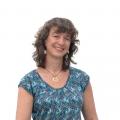
THE story goes something like this.
In the febrile atmosphere of the military occupation of Palestine, getting about was difficult and it was often hard to find the way. Navigation by satnav was impossible, and there was no electricity or fuel for luxuries like phone torches.
The streets were barely passable and there were spies and soldiers everywhere. Most of the population were being forced to move around from zone to zone as part of the measures of control imposed by King Herod.
A small group of travellers, a bunch of intellectuals it seems, were making a journey of solidarity to be with a stateless family, a foster dad, a new mum and their newborn child who had been displaced from the north to the town where she’d ended up having the baby.
They knew enough about knowledge to know that it was complicated but nonetheless they decided their best bet for directions was in the fleshpots of power. It’s an easy mistake.
READ MORE: Kelly Given - We all have a duty to not turn away from suffering
Universities, libraries, archives, cultural centres tend to be concentrated in cities and near the buildings of governors and kings.
When they started asking questions about the wee baby they were looking for, the full weight of suspicion, censorship and propaganda came upon them and they realised that not everything the empire told them could be trusted and their normally careful ethical guidelines had failed them, and exposed vulnerable people to potential threat.
They picked their way across bombed-out streets and buildings. They made their visit. Then went home giving the palace and the king a wide berth. For the king’s wrath was aroused. He could brook no stateless family, no baby, no hotel for a minor and their fragile parents, he couldn’t bear that they were boat people up there on Lake Galilee.
The more he thought of them the greater his rage. They must be destroyed and to be on the safe side, so must all the babies in the town.
He didn’t go to war, he went to massacre. Rachel’s children, all the children, they were slaughtered. He went in with bombs from the sky, with dumb bombs from drones, with shells from the sea and with missiles from the streets.
His soldiers went from house to house, they shot pregnant women in the street and mowed them down with tanks, they threw pregnant women from the fifth storey, they wiped out whole families just to be sure, just to be sure, just to be sure.
Nine thousand children dead.
Their bodies in mass graves, their heads and limbs blown to pieces, body after grey body, covered in dust and debris, cold.
Tiny.
So very tiny.
Dead.
Killed by Israel’s soldiers.
Again.
“A voice is heard in Ramah, a voice of bitter crying and weeping, Rachel is weeping for her children, she cries and will not be comforted.”
This verse, from Matthew’s Gospel, comes through from the Old and New Testament of the Christian Bible. The text lingers. It lingers over every birth. It lingers as a sign of the ever-present fear of statelessness, of losing the land to a state power in unimaginable brutality.
READ MORE: Footage shows Israeli soldiers rounding up men in Gaza stadium
Rachel is the woman who prefigures Mary, she dies giving birth and is buried by a roadside. Mary gives birth to Jesus in Palestine – a refugee, under rubble, bleeding out, under occupation and illegal forced displacement, spat upon, a target of zealotry and hypocrisy Then stripped, tortured, and executed with no grave.
December 28 is traditionally the day when the church celebrates those killed by King Herod in what is known as The Slaughter of the Innocents.
The Christmas Story is no tinsel town. It is messy, humiliated, hungry, cold. It is a collective birth-death trauma for stateless people, under brutal occupation, with no escape.
It is Gaza.
Alison Phipps is Unesco chair for refugee integration through languages and arts at the University of Glasgow



Why are you making commenting on The National only available to subscribers?
We know there are thousands of National readers who want to debate, argue and go back and forth in the comments section of our stories. We’ve got the most informed readers in Scotland, asking each other the big questions about the future of our country.
Unfortunately, though, these important debates are being spoiled by a vocal minority of trolls who aren’t really interested in the issues, try to derail the conversations, register under fake names, and post vile abuse.
So that’s why we’ve decided to make the ability to comment only available to our paying subscribers. That way, all the trolls who post abuse on our website will have to pay if they want to join the debate – and risk a permanent ban from the account that they subscribe with.
The conversation will go back to what it should be about – people who care passionately about the issues, but disagree constructively on what we should do about them. Let’s get that debate started!
Callum Baird, Editor of The National
Comments: Our rules
We want our comments to be a lively and valuable part of our community - a place where readers can debate and engage with the most important local issues. The ability to comment on our stories is a privilege, not a right, however, and that privilege may be withdrawn if it is abused or misused.
Please report any comments that break our rules.
Read the rules hereLast Updated:
Report this comment Cancel